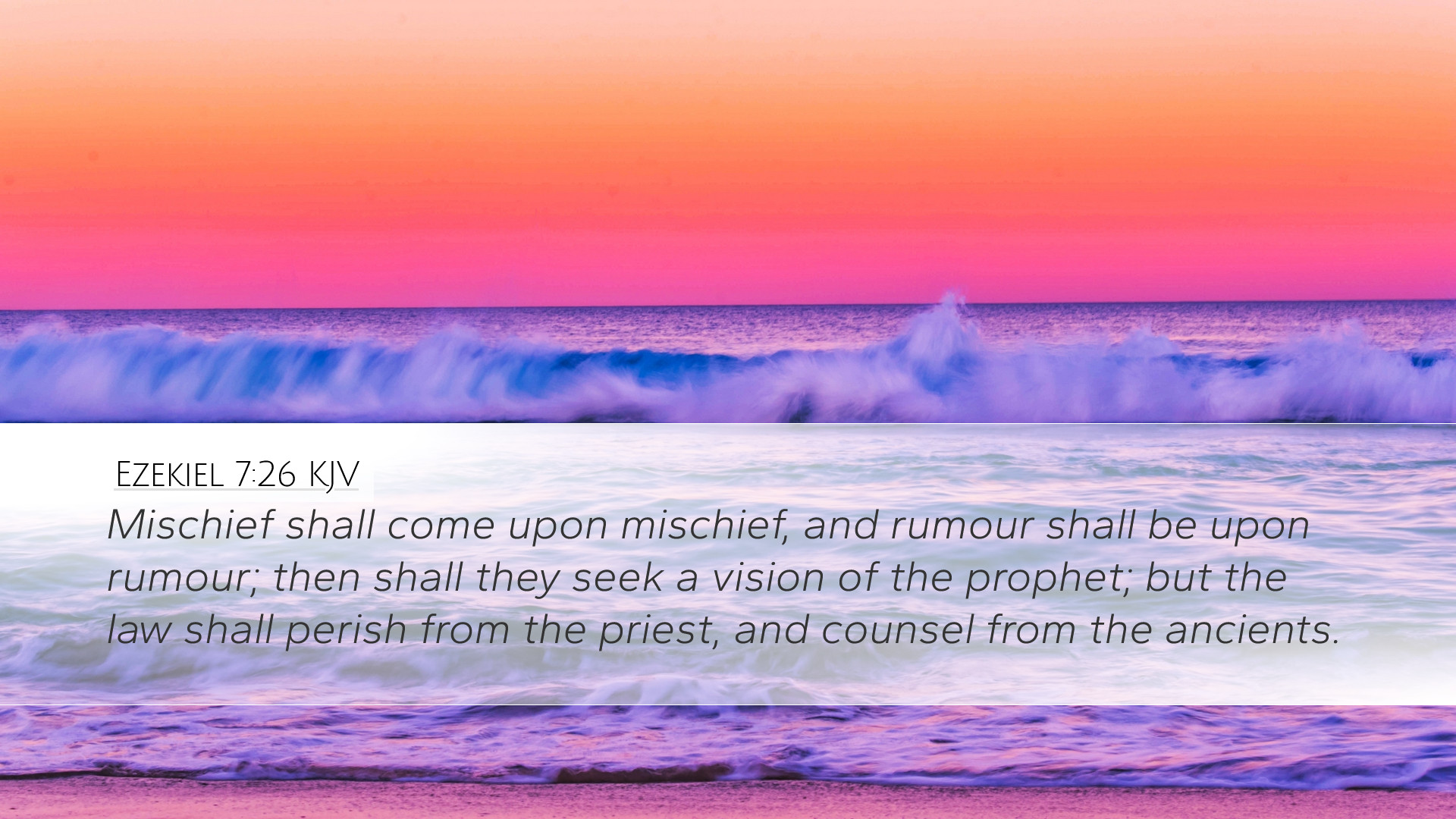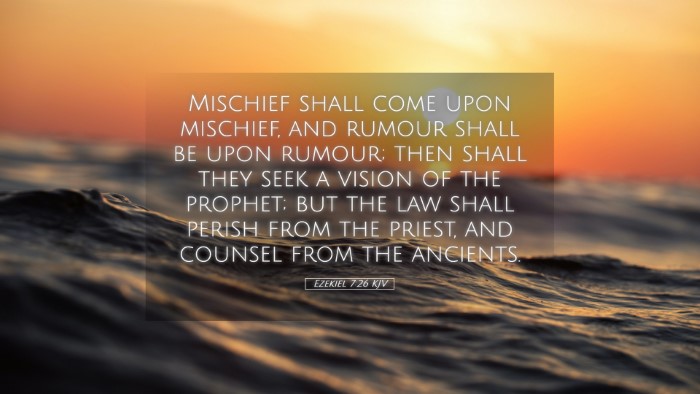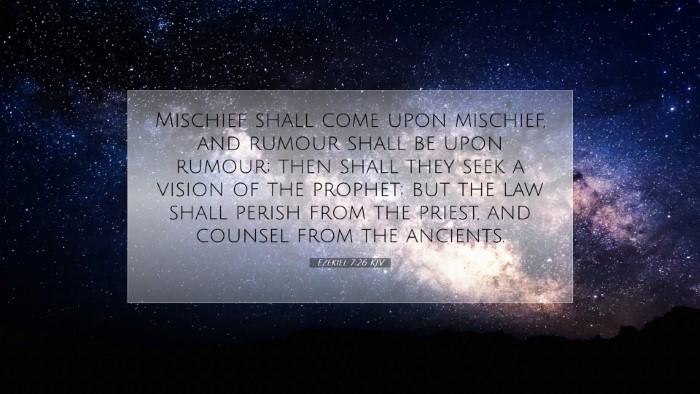Ezekiel 7:26 - A Commentary
Verse Text: "Disaster will come upon disaster, and rumor will be added to rumor; then they will seek a vision from a prophet, but the law will perish from the priest and counsel from the elders."
Introduction
The prophetic words of Ezekiel in 7:26 address the impending doom and judgment that would befall Jerusalem and its inhabitants. In this commentary, we draw insights from the writings of public domain scholars such as Matthew Henry, Albert Barnes, and Adam Clarke to explore the depth of this verse and its implications for understanding God's dealings with His people.
Contextual Background
To grasp the meaning of Ezekiel 7:26 adequately, it is essential to consider its context within the broader scope of Ezekiel's ministry. Ezekiel prophesied during a time of great turmoil and impending exile for the people of Judah. This chapter depicts the comprehensive calamity that was to come upon the nation due to its rebellion against God.
Historical Setting
Historically, this prophecy emerged during the Babylonian siege of Jerusalem. The nation of Israel faced relentless disasters—both spiritual and physical—which culminated in their divine judgment. The nation had relied heavily on their spiritual leaders, but this reliance was about to be proven futile.
Exegesis of Ezekiel 7:26
Disaster upon Disaster
“Disaster will come upon disaster, and rumor will be added to rumor” captures the escalating nature of calamity. Matthew Henry notes that these disasters symbolize the compounded afflictions that the people would face—each disaster leading to more turmoil. The repetition emphasizes the severity and inevitability of their situation.
The Search for Prophetic Guidance
Henry highlights that the verse indicates a profound desperation among the people: “then they will seek a vision from a prophet.” The expectation of divine insight illustrates the people’s recognition of their need for guidance in a time of crisis. However, it also underscores a tragic irony—they had neglected the prophets throughout their prosperity and now turn to them only when affliction strikes.
The Role of Spiritual Leaders
Albert Barnes points to the significant loss that the people would suffer: “but the law will perish from the priest and counsel from the elders.” This observation reveals that not only have the leaders failed to guide the people in righteousness, but they, too, will find themselves devoid of the wisdom and truth they once possessed. The absence of law and counsel signifies a complete spiritual collapse.
Theological Implications
The verse presents several powerful theological themes worthy of exploration:
- God's Judgment: Ezekiel 7:26 serves as a stark reminder of God's judgment upon sin. The compounded disasters indicate the seriousness with which God regards persistent disobedience.
- The Futility of Human Wisdom: The people's search for a prophet at a time of crisis suggests a critical error—a dependence on human wisdom rather than a relationship with God and His Word.
- Spiritual Leadership: The verse raises questions about the role and responsibility of spiritual leaders in guiding their communities. The failure of priests and elders to provide counsel reflects the dire consequences of neglecting their calling.
Practical Applications
For modern-day pastors, students, and theologians, Ezekiel 7:26 offers profound lessons that remain relevant:
- Seeking God Before Crisis: The urgency of seeking God's guidance must not be relegated to times of distress. Regular engagement with the Scriptures and prayer can prepare hearts for trials.
- Emphasizing Sound Doctrine: As church leaders, the imperative to teach sound doctrine is paramount. Like the priests of Ezekiel's time, leaders must not lack the law of God in their counsel to the congregation.
- Understanding Consequences: Acknowledging that unfaithfulness to God can lead to dire consequences helps believers navigate the tension between grace and judgment.
Conclusion
Ezekiel 7:26 encapsulates the gravity of divine judgment and the failures of spiritual leadership. By combining the insights of Matthew Henry, Albert Barnes, and Adam Clarke, we see the layers of meaning in this verse unveil a challenge for both ancient and modern believers. As we reflect upon these truths, may we be inspired to seek God authentically and uphold the faithful teaching of His Word.


